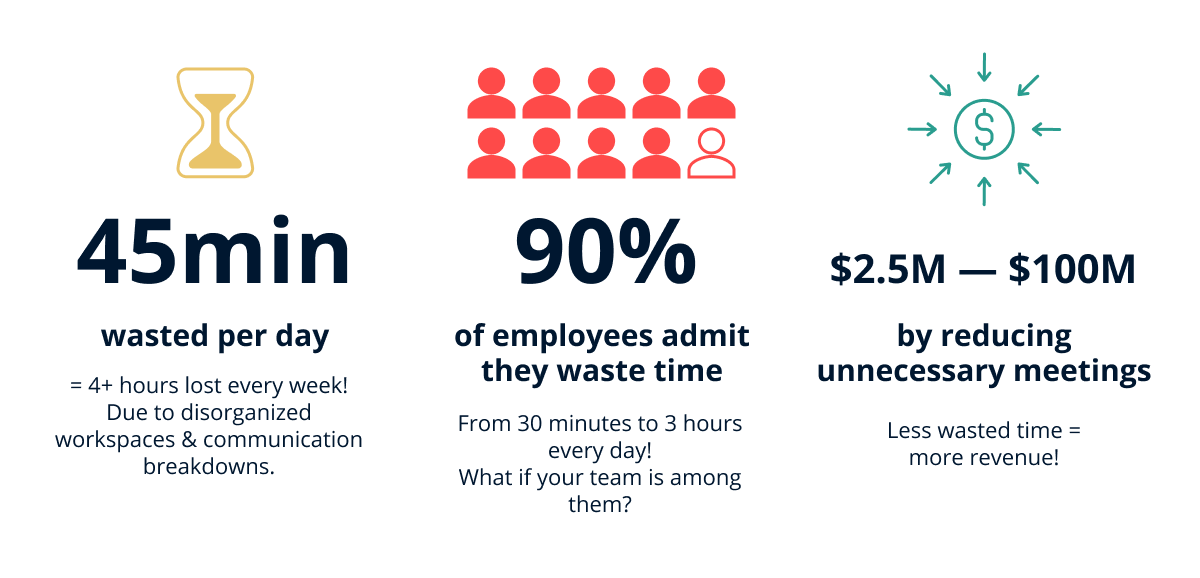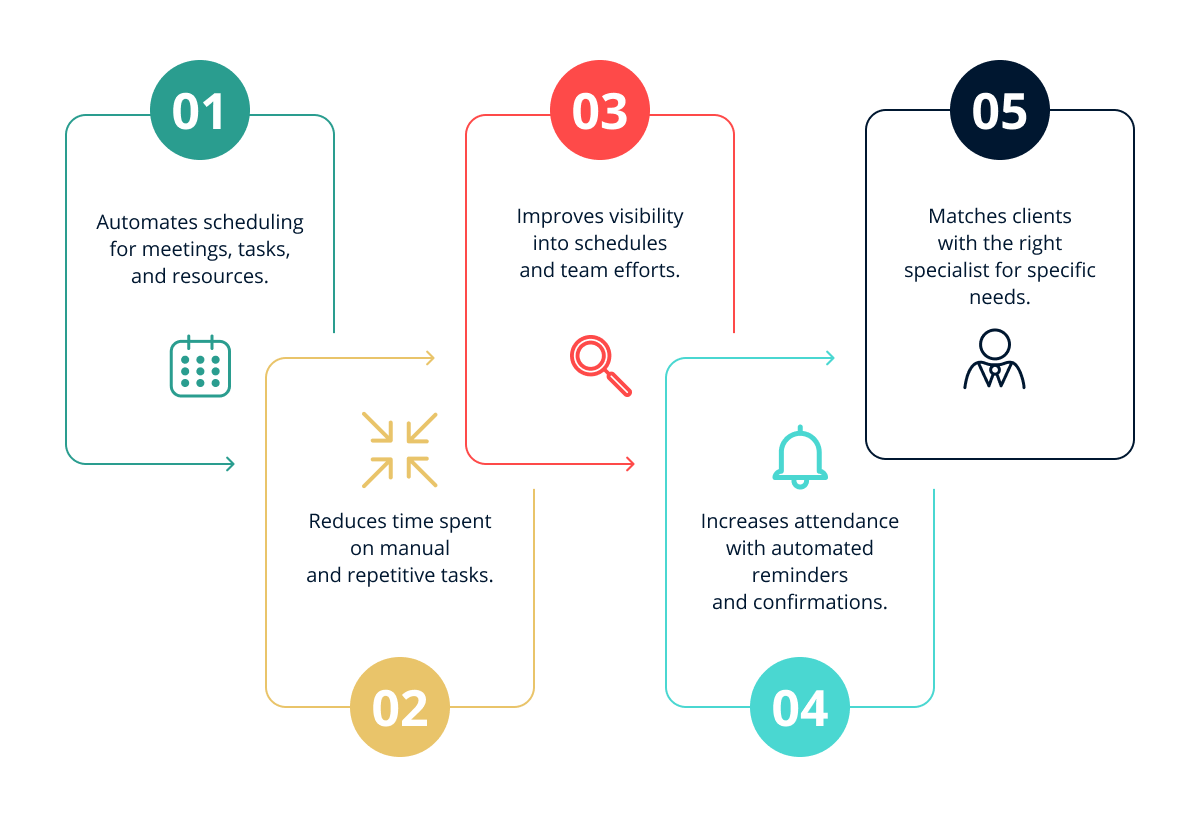“Batman needs a butler to keep track of his tasks, but you won’t. Find out how Time Management can be the game-changer for your business. ”
A new pressing issue to be resolved every day? Check.
Some incredibly effective and trustworthy teammates? Check.
An incredible arsenal of tools, gadgets and technology? Check.
There isn’t much that separates a business owner from a superhero, with both regularly facing a constant stream of issues to solve, targets to reach, and problems to eliminate.
But not every brand owner or entrepreneur can afford a snarky British butler, or buy an entire tech company to fund the daily activities. That is why Time Management plays a crucial role in a business’ day-to-day efforts.
After all, Steve Jobs once said that “time is the most valuable resource”, and Time Management is a skill that can take your business (and you) to the next level…
without leaving a comically large hole in your budget.
But first, let’s start with the basics.
What is Time Management?
Time management is the ability to plan, organize, and effectively deploy an allocated amount of time you have during a timeframe. Successful Time Management involves setting priorities, managing pressing tasks, and making conscious decisions to maximize the productivity of your own job, your team and your overall business.
Your timeframe could be anything between an 8-hour workday, to a corporate meeting,
to a university lecture, and your ability to prioritize the main talking points, key events and actions discussed during the timeframe define how you’re successful with time management.
Time is a priceless resource
Imagine that you are the manager of a creative marketing team in your organization.
Even for a modest agency, your daily responsibilities could include tasks such as:
– Developing new marketing materials for clients
– Setting up meetings with new potential partners
– Negotiating new/improved contracts with key stakeholders
– Brainstorming ideas and solutions for a new client
– Miscellaneous meetings with managers and employees
Add to that the constant travel and random last-minute meetings, it is safe to assume that time is a resource that plays a huge role in your daily activities.
But that’s just one example!
Here are some more Time Management statistics that tell the deeper story.
Time Management Statistics of 2025

According to Business Insider, Smaller companies (around 100 workers) could save nearly $2.5 million, while enterprises (more than 5,000 employees) would save more than $100 million annually, if more of their meetings could be turned into an email.
Based on a survey from NetQuote, around 45 minutes of an employee or manager’s time is wasted per day because of unorganized workspaces or communication breakdowns.
This amounts to more than 4 hours a week.
According to elearningindustry.com, more than 90% of workers admit to wasting time while in the office or working from home. This can range from 30 minutes to 3 hours in procrastination, water-cooler conversations or frequent breaks.
Interestingly, large-scale businesses are just as affected by time mismanagement,
as company resources and priority of tasks can get lost behind internal silos, communication breakdowns and a tower of email backlogs.
Employees can struggle… in time-sensitive industries
In fact, even time-sensitive, large sectors such as education, IT, retail, banking and government bodies struggle to find ways that can reduce the time spent on monotonous tasks.
Case in point, A comprehensive study clearly indicated that time management has a positive impact on productivity in the Ghanaian Central Bank. However, it was found that staff of the bank mismanaged transaction time and delayed task completion due to faulty time allocation.
Furthermore, the American Psychological Association found that approximately 46% of stress among frontline workers and psychologists is due to an excessive workload, which is either caused by time mismanagement, or lack of support from the business owners.
This is exacerbated by the fact that, according to research by Development Academy,
a staggering 82% of people don’t use any time management system within small or large scale business operations.
Therefore, acknowledgement and support of the workforce, regardless of industry,
is absolutely vital when attempting to improve the output and efficiency of a business.
How can Scheduling Software help?
Scheduling Software allows businesses (or business owners) to organize schedules, appointments, tasks, and resources without losing time on manual, monotonous labor.

A scheduling software is designed to automate the process of management, organization and task prioritization among a business, which makes it easier for the employees and managers to coordinate tasks, events, meetings, and allocate resources effectively.
Let’s go back to your creative marketing team.
By using a Scheduling Software to better manage your time efforts, you will be able to:
– Insert more hours into creating marketing materials for clients
– Automatically set-up meetings with potential partners
– Self-schedule negotiations with key stakeholders at your desired time
– Gain complete visibility over your team’s solutions for a new client
– Maximize attendance during meetings with your workforce
How is SUMO Scheduler unique?
SUMO Scheduler is a powerful online scheduling software that automates record creation and maximizes your business’ performance.
With a state-of-the-art interface, SUMO provides a 360-degree view of every time-sensitive event, which offers visibility into the entire time management process of a business.
With Appointment Scheduling, managers (and employees) can automate tasks such as phone call reminders, email confirmations, SMS notifications, and automate follow-ups for unconfirmed appointments, helping manage every stakeholder meeting meticulously.
For instance, if your customer service department is divided among customer retention and customer support teams, another asset such as SUMO’s Assignment Engine can help match the specialists and the clients together based on the business’ pre-assigned metrics, thus automatically assigning the right team for the right client instantly.
This, along with the plethora of personalization options, has allowed companies switching to SUMO Scheduler to save time and money, while also improving customer satisfaction.
This is how a Scheduling Software allows your business to focus on time management without having to worry about a loss of productivity or revenue.
Start your free trial today and experience how SUMO Scheduler can simplify your time management. No credit card required.




